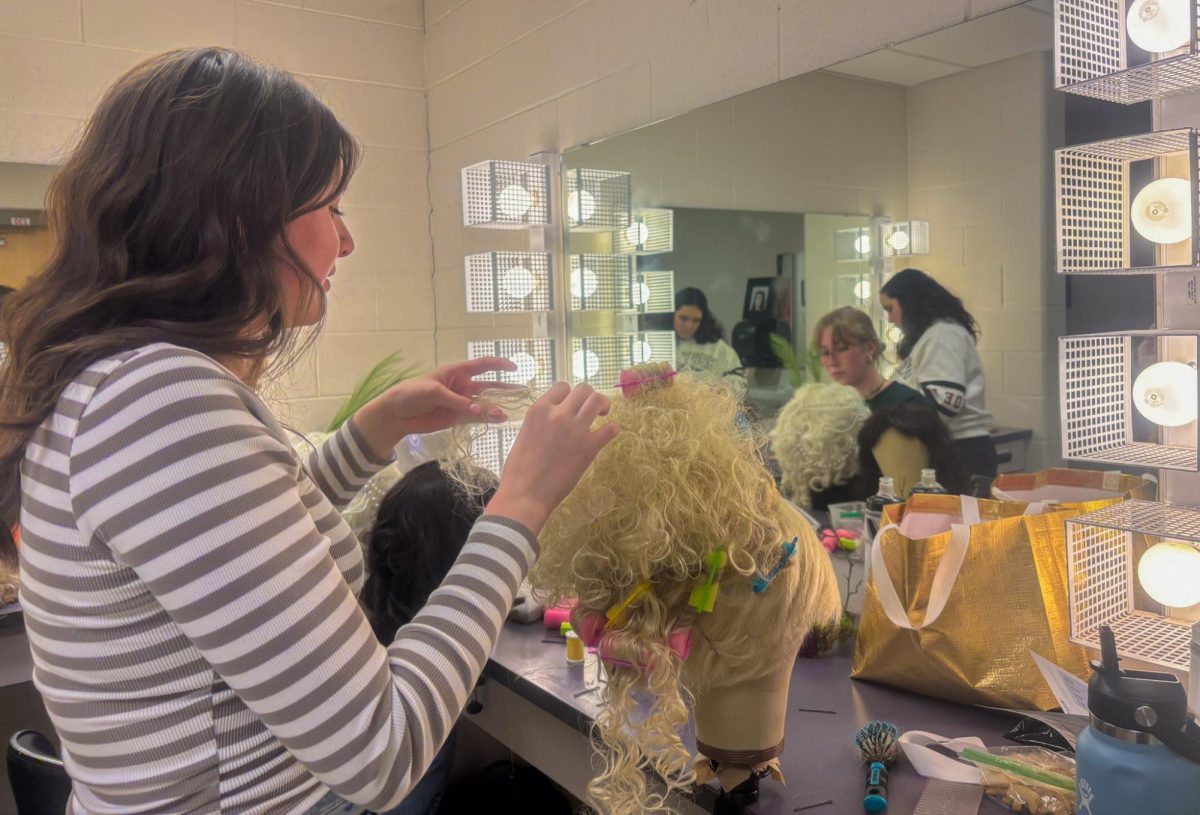Senioritis affects everyone at the end of their high school and college career. Some it may affect too much, while other’s learn how to cope with it.
“Not caring, no motivation to finish busy work and homework.” This was a definition provided by senior Emily Weber about senioritis. Fellow senior Alex Semadeni defined senioritis as “a severe lack of interest in anything school related.” Talk to any particular 12th-grader at Fossil Ridge High School, and a similar response is likely.
By the time senior year comes, students have been beat down with schoolwork, sports, work, band and any other extracurricular activities that they may engage in throughout their high school career. It has the ability to affect students so much that they “don’t care about schoolwork anymore,” according to FRHS senior Sarah Beard. “Being so close to graduating and knowing where you will be after high school tears you down as senior year progresses.”
Many students believe senioritis is real and can affect one’s life in many ways. Although senioritis has the same effect on the people it takes hold of, there are three different stages that senioritis is comprised of. First there are the early parts of the syndrome, then the process that one must endure when encountering senioritis, and finally the ways to cure it so that it does not hinder a student’s life or college career after graduation.
Senioritis has the ability to take hold of students at many different times, making it difficult to say when to begin preparing for it. Senior Shane Swift said that senioritis does not truly begin “until after September when the holidays start.” On the other hand, Weber thinks senioritis doesn’t begin until one starts college applications,
while Semadeni believes senioritis does not take effect until one gets accepted into the college that they plan on attending. With this in mind, students may begin experiencing early symptoms of senioritis at any point during their high school career. Beard stated that she had a “mild case junior year.” Semadeni attested with Beard, saying that the symptoms usually occur “well before senior year begins.”
According to Joe C. of urbandictionary.com, the symptoms of senioritis include wanting to wear old athletic shirts, sweatpants, and sweatshirts, laziness, lack of studying, repeated absences, and a generally dismissive attitude. Although it is hard to say when exactly the symptoms may begin to take effect, Semadeni has an idea. “Always be ready for it because it will hit you before you know it.”
Senioritis can also be contagious between friends because “it is our last year with friends and our last chance to hang out with them,” Weber said.
Semadeni thinks senioritis can be directly related to college acceptance. “Once students are accepted into college, they realize that the rest of high school courses aren’t directly impactful toward their immediate future, and feel like they are wasting their time.”
There are ways that may help to combat the strength of senioritis. Swift has found from personal experience that one of the best ways to contest senioritis is to do homework with friends, therefore making it more enjoyable as well as making it easier to accomplish the homework. The New York Times published an article giving seven reasons why students should try to avoid senioritis. These act as incentives that one can use to help stay away from the syndrome. The first reason that they gave was one’s college admission offer may be rescinded. The article stated that getting a C won’t have serious consequences, but receiving a couple of Ds on a transcript can get a college’s attention in a negative way. The article also said that colleges are still monitoring the individual. Jefferson R. Blackburn-Smith, vice president for enrollment management at Otterbein University, wrote in an e-mail, “Any student who either failed a class their final semester or fell below a 2.0 GPA is sent on to me for follow-up.”
Swift has some final advice for students suffering from senioritis: “Don’t let it get to you.”
New York Times article on senioritis: http://thechoice.blogs.nytimes.com/2013/05/10/7-reasons-to-avoid-senioritis/?_r=0
If you would like to see a video of senioritis in a student’s everyday life, visit this URL http://www.youtube.com/watch?v=zuik9h9WQz8














